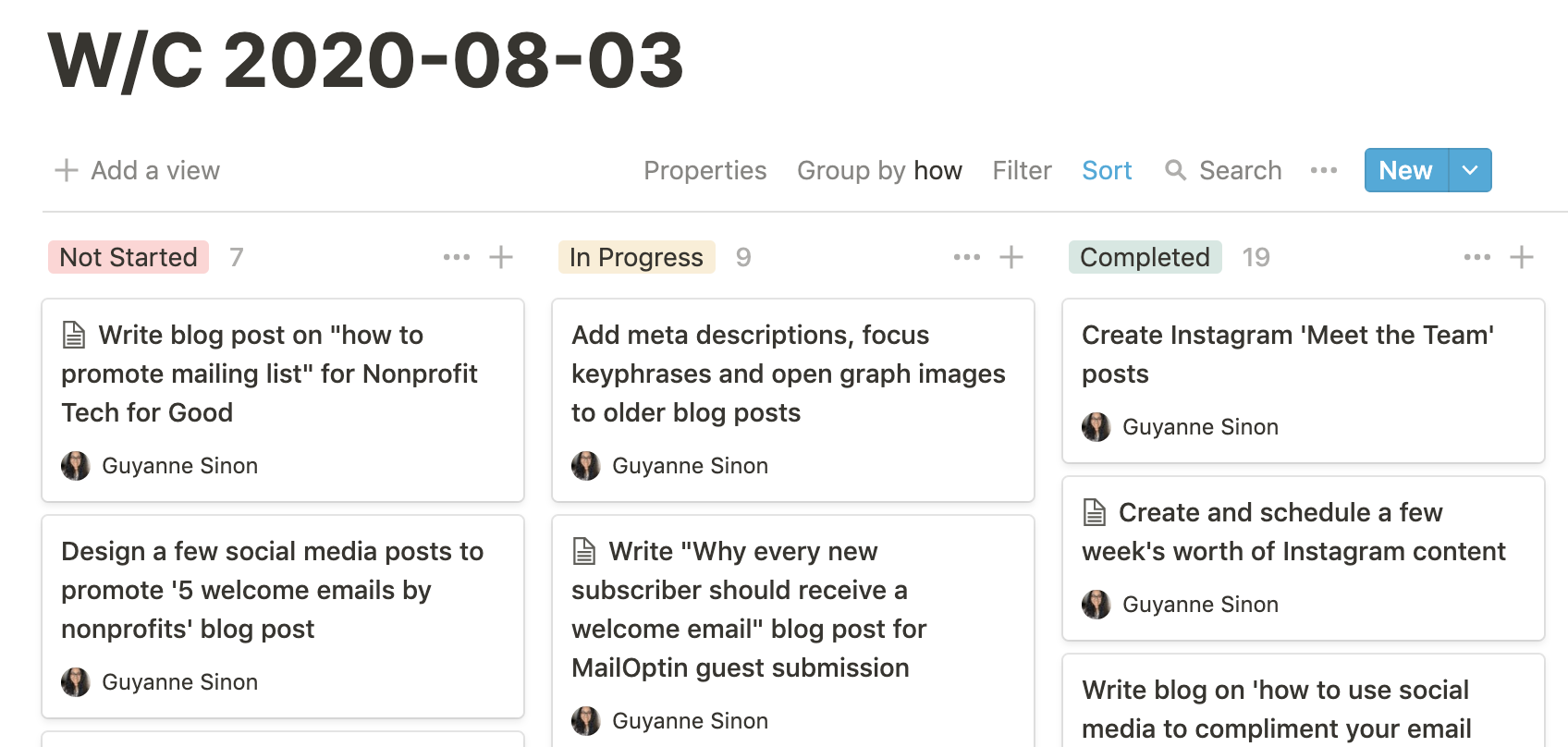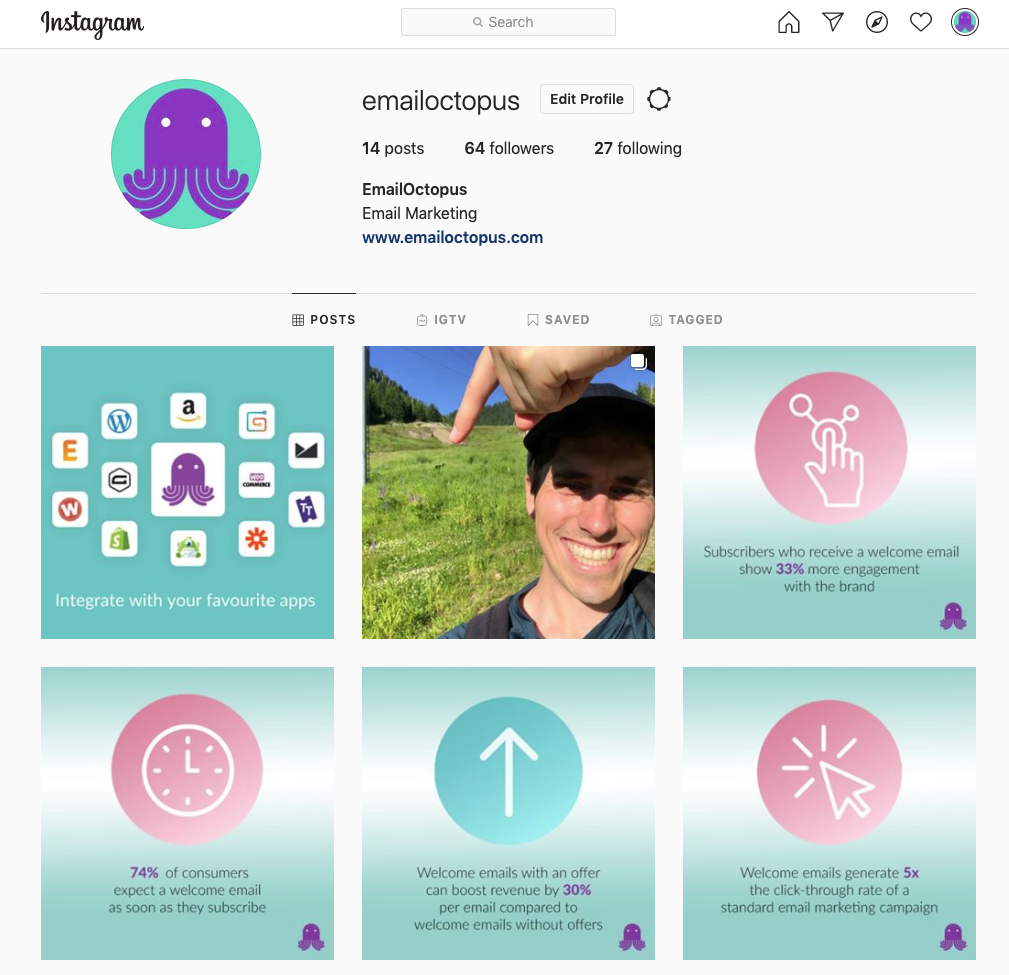When we first signed up to the UCL 2020 summer internship programme, we didn’t think it’d be a remote one. This was back in February when the full impact of Coronavirus and global lockdowns was just on the horizon.
We’ve run internships in the past. And they’ve been the perfect opportunity to get our remote team together in one spot for away days and planning sessions.
But this year was different. And as the UK brought in restrictions to limit the spread of Covid-19, we soon realised we’d have to move the internship online.
After eight weeks of hosting a remote internship, here’s what we learnt in the process.
Page Contents
1. Create opportunities for social interaction
One of the biggest downsides in working remotely is the loss of regular interactions with your colleagues. And the lack of face-to-face chats and general office banter.
For uni students who have spent the past few years working on a degree surrounded by classmates and tutors, the transition to remote work can be quite a change. And a bit of a challenge.
It’s why it’s important to create opportunities for social interaction between your, now expanded, remote team. And to include your intern in as much as possible.
We did that in a few ways.
After previously road-testing ways to have fun at work remotely, we scheduled a few of these activities into the eight-week internship. Kicking off, and ending with, an online game tournament using JackBox TV and Zoom.
If we’d all been working in an office together, this would have been an evening out bowling or playing darts. But in the new normal of remote working, playing games online had to make do.
QuizBreaker turned out to be another way to help our intern get to know the team. And for us to get to know her.

And then there was Slack, our preferred platform for internal communication. We’ve got a few channels reserved purely for chit-chat on here. And we’ve whole heartedly embraced the Giphy extension.
But Slack is not WhatsApp or Facebook Messenger. And graduates have probably never used it before. So it’s important to give your intern a thorough introduction to Slack and all its functionalities and unwritten usage rules.
How to make this work
Schedule fun team activities at points throughout the internship – get the team together at the beginning of the programme so your intern has a chance to meet everyone in a more casual setting. And at least once again towards the end of their time with you, as a goodbye event.
Put a strategy in place to welcome all new members to your remote team – an internship is a good opportunity to look at how well you make new members feel welcomed and included. And perhaps make a few adjustments.
Encourage office-style banter on your communication channel – if you’ve got a #random or #team_chat channel on Slack, show your intern how it’s used and prompt some daily chat to break up the day and connect with others.
2. Regularly check in
Online communication is by its very nature impersonal. And it’s no substitute for the organic exchanges that take place in an office environment.
Sending a direct message to a new manager that you’ve not met in person can be intimidating. So to remove this barrier to communication, schedule regular check-ins. For us, at the beginning, this meant morning calls to discuss tasks for the day ahead. And afternoon calls to see how these were coming along.
As the weeks progressed and tasks became easier for our intern, this reduced down to one a day. Sometimes, one call every other day.
But this is perhaps where I went wrong. As not having a daily call meant less of an opportunity for organic conversation where any issues might have naturally cropped up.
How to make this work
Schedule daily calls – in the morning, set tasks for the day ahead and go over instructions on how to do things. It’s also worthwhile scheduling a second afternoon call to catch up on any problems encountered during the day.
Stick to a daily call even if there’s nothing specific on the agenda – even if it’s a quick “tell me about your day” chat, it will create the opportunity for conversation. And something might pop up that your intern didn’t think was worth a DM.
Always use video calls where you can – it’s more personal than phone and helps build a stronger rapport.
Show that you’re always open to communication – reiterate to your intern that they can reach out whenever they need to ask a question. And make it easy for them to do that.
3. Set deadlines
Getting deadlines right is a bit of a balancing act. You don’t want to impose rigid deadlines when an intern is just starting out, as they’re still learning how to do things. And so they’ll be a little slower.
But conversely, being too lenient with deadlines means you end up with tasks dragging on for much longer than anticipated. Or worse, having to chase your intern for work after the internship has finished. And that’s not fun for anybody!
Instead, I’d say the best course of action is to keep deadlines loose at the beginning. But start tightening them up once your intern has completed a few tasks and you’ve got a sense of how long other tasks will take them.
Then set specific deadlines. And don’t be afraid to follow up on these tasks to make sure they’re on track. That’s where your daily catch up calls will come in handy.
For many of us, university is often our first experience of scheduling our time freely. Yet time management can still be a challenge for remote workers, so as a manager, it’s your responsibility to provide structure with deadlines.

How to make this work
Give clear deadlines and regularly check in on progress – don’t be afraid to set firm deadlines and if needed, break down larger projects into daily tasks to keep your intern on track.
Show your intern how to use different productivity tools – remember that your intern is not only learning how to do a new job, but also learning how to work remotely using remote tools. Help out by providing guidance on how to manage their workload.
4. Introduce your intern to all aspects of your business early on
The job description might have focused on one particular role within your business. But to give your intern the most value from their internship, it’s important to introduce them to all the various roles early on.
That way, they learn more about the industry you’re in and the numerous components that make up your particular business. This will also expose them to different areas that might strike an interest that they can explore in more detail during their time with you.
Our internship was a marketing role. But even within marketing there are so many different fields, from analytics to advertising, blog writing to design.
It’s a little too easy to become focused on a narrow selection of tasks once an intern has shown aptitude in those tasks. But to help them test out their skills and learn even more, it’s important to keep that selection broad.
How to make this work
Set aside time at the beginning to explain how your business operates – provide an overview of the answers to these three important questions: what we do, why we do it and how we do it. Access to a company handbook comes in, well, handy here.
Arrange for each member of the team to spend time with your intern – this gives your intern a chance to meet everyone and get to know their roles and responsibilities. It also provides an opportunity for them to find out more about the intricacies of your business. Which in turn might spark an interest they wish to develop during their internship.
Schedule tutorials on how to do things – for us, this included a video intro to how we use Google Analytics. And a brief overview of how Google Ads works. Think about what platforms you use that you can train your intern on to provide them with valuable experience for future jobs.
5. Give them a project to take ownership of
When people enjoy a sense of ownership, it helps them to feel that they’re playing an important role in the success of your business. And giving someone a project to own also taps into the need for autonomy, one of the three key areas Daniel H. Pink identifies in his book Drive: The Surprising Truth About What Motivates Us.
For us, that project was Instagram. We’ve owned an account for years but never done anything with it. So we tasked our intern with pitching why we should start posting on the channel. And suggest the type of content that would work best.
With this project, our intern flourished. Her pitch was well-researched and persuasive, and she demonstrated an infectious enthusiasm for the channel and future content. And now we’re regularly posting.
It was a win for us – Instagram is something we’ve been mulling over for a while. And now it’s up and running. And it was a win for our intern too. She discovered that out of all the fields under the marketing umbrella, social media was the one she was most passionate about.

How to make this work
Create mini projects with a specific goal – for this particular role it meant writing a blog article, creating an accompanying content asset, setting up a sign up form and funnel list, and setting the whole thing in action.
Use the internship as an opportunity to investigate an idea that’s been on the back burner for a while – we’ve all got ideas on new channels or projects to improve our business. But some of these ideas get pushed down the priority list. So task your intern with launching one of these ideas. Get them to do the necessary research, ask them to pitch it to you, and have them launch it.
When setting tasks for your intern, think about how it will sound on their CV to future employees – try and give them projects that have measurable results. And give them an opportunity to own a project from start to finish.
Final thoughts
Hosting an internship is a great way to bring a fresh perspective to your business. And the “new normal” of remote working doesn’t change that. In fact, it’s an opportunity to assess how well you work as a remote team. And to consider ways in which you can improve. Whether that’s hosting more virtual social events or encouraging more banter on the company Slack.
And that is ultimately good for your business.
While for interns, a remote internship provides the experience they need to adapt to the job market in the era of Coronavirus. Which is certainly valuable while many companies are still encouraging their employees to work from home.
So if you’re thinking of hosting an internship, but are a little put off by the thought of a remote version, we say do it! You’ll learn and grow from the experience. As will your intern. And that’s the real value of an internship.
If you’ve hosted a remote internship, what other tips can you share? Let us know in the comments section below.


No Comments
Leave a comment Cancel